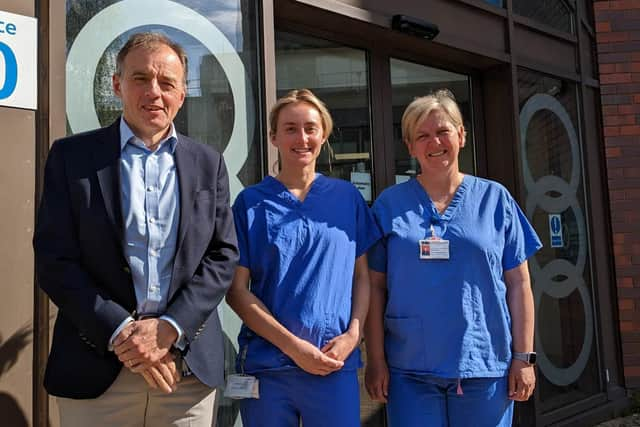Yorkshiremen recruited on pioneering trial to measure how much eating tomatoes boosts chances of having a family
Previous studies revealed that lycopene, the chemical which gives tomatoes their red colour, and is also thought to reduce blood pressure and lower men's risk of prostate cancer, could help improve their fertility.
It is estimated that 50 per cent of fertility problems within a heterosexual couple are due to the man.
Advertisement
Hide AdAdvertisement
Hide AdIn the previous research led by researchers in Sheffield, men who took two lycopene pills a day for 12 weeks, ended up with almost 40 per cent more fast-swimming sperm, which are important for fertilising an egg to get someone pregnant.


Now a further trial will take place involving 80 volunteers aged 18 to 50, recruited by Jessop Fertility, which provides fertility treatments to NHS and self-funded patients at the Jessop Wing in Sheffield.
Only men with a “low motile” sperm count will be offered the opportunity to enter the trial.
Half will take lycopene supplements and the other half will take an identical placebo every day for 12 weeks.
Advertisement
Hide AdAdvertisement
Hide AdNeither the researchers nor volunteers, from Sheffield and surrounding areas, will know who is receiving the treatment and who will be receiving the placebo. Sperm and blood samples will be collected at the beginning and end of the trial.
The team is being led by internationally recognised expert in male infertility Professor Allan Pacey, from the University of Sheffield.
Experts believe tomatoes may improve sperm quality because the antioxidants they contain prevent damage to the sperm, so that they retain their size and shape and swim better.
Prof Pacey said the work so far has not investigated the mechanism for lycopene’s beneficial action.
Advertisement
Hide AdAdvertisement
Hide AdHe said: “It’s currently estimated that impaired testicular function contributes to around 50 per cent of all cases of heterosexual infertility.
"One key cause of poor sperm quality is an increase in oxidative stress and we want to see if (the supplement) LactoLycopene can increase sperm quality for those men and whether it can help couples avoid invasive fertility treatments.”
Jonathan Skull, Clinical Head of Assisted Conception at Jessop Fertility and Consultant in Reproductive Medicine at Sheffield Teaching Hospitals NHS Foundation Trust, said: “We know environmental factors are really important in male fertility and may affect the quality of men’s sperm, so it is really exciting to be working with the University of Sheffield on innovative research looking at whether this food supplement could help to improve men’s fertility.”
